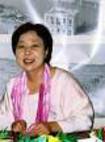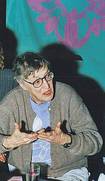Menu

Contributors and important voices (archive)
Remembering Susan Sontag, Donella Meadows and Molly Ivins
Click on the pictures to read their texts:
Voices of Women: women writers and artists
Editor's note:
Most of the original material in this section is archival, done when our project was based in Berlin and Bonn, Germany, from 2002-2012. As it still valuable, we offer it to readers and researchers today, although some links may need updating. Newer entries are dated. We hope that our work in this area can expand as we grow from our new base in the US, where women's voices on ecology, peace and justice are more important than ever.
Women writers whose new work is offered here include Ursula Gelis (Germany/Norway) Mina Hamilton (New York State/USA) and Joan Baxter (Nova Scotia/West Africa)
--- Anna Gyorgy, WLOE coordinator, English language editor, January 2017
Voices of Women: Reports by Satomi Oba & Jean Grossholtz

- Satomi Oba
Satomi Oba
• Japan Summer 2004 (pdf format, 7 pages, not updated)
In this report, the late and much missed Satomi Oba, presented a personal overview of issues in her native Japan. A long-time dedicated anti-nuclear activist with particular concerns for human rights and justice, she discussed nuclear weapons and power, the international campaign to halt the militarization of space, and citizen action for peace.
• The Lie of the Peaceful Use of Nuclear Energy:
Nuclear Weapons and Nuclear Power Plants - Two Sides of the Same Coin European Trip Report, October 2004 (pdf format, 10 pages)
See also her report on-line: Nuclear Power and Nuclear Weapons in Japan
from June 18, 2002, on the day of opening of the Rokkashomura Photo Exhibition
in Hiroshima

- Jean Grossholtz
Jean Grossholtz
• The Cotton Campaign From Diverse Women for Diversity, July 2004.
(download here, 8 pages)
"The piece gives something of the political history of cotton from wild plant to industrial commodity. It goes without saying that all our work targets the residual effects of European colonization. These in turn are amplified by the current global neo-liberal regime, and its patriarchal capitalist financial institutions - the World Bank and World Trade Organization (WTO). In the U.S. and European Union cotton is a small part of economic activity. But in West Africa it is critical."




